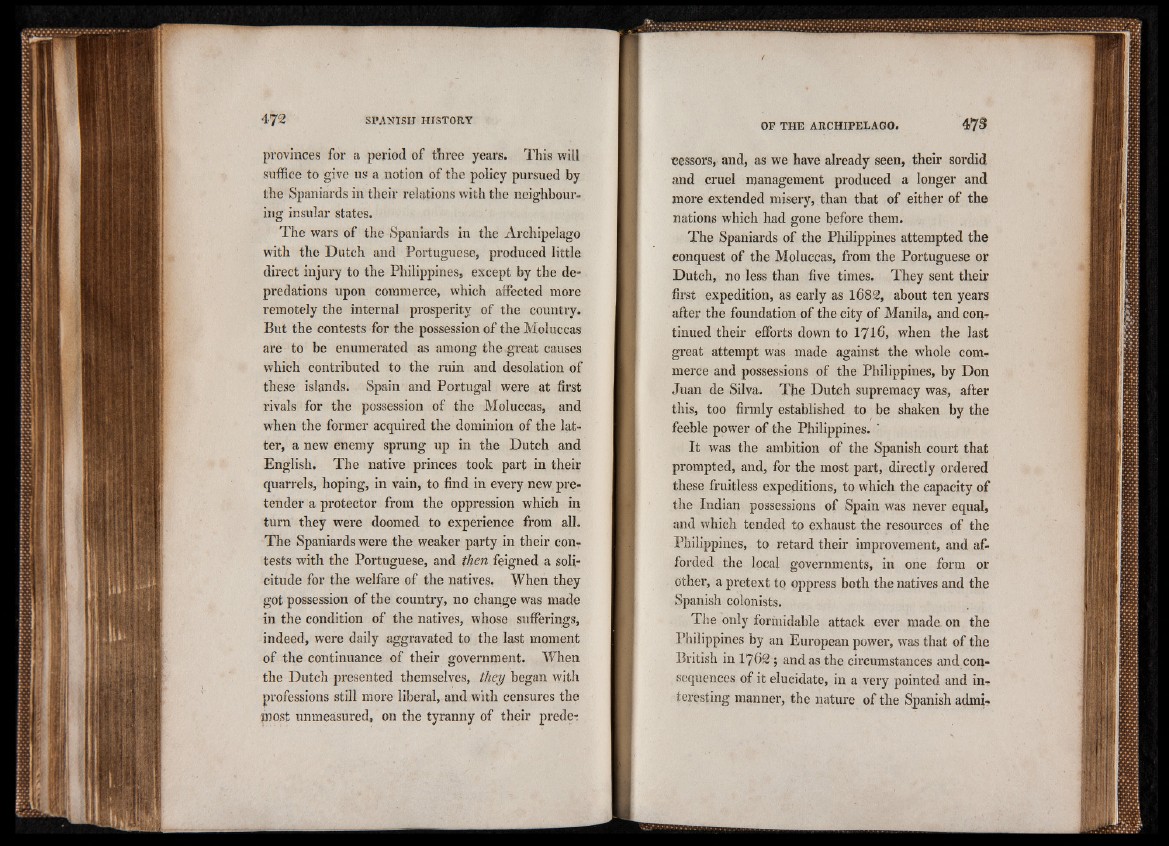
provinces for a period of three years. This will
suffice to give us a notion of the policy pursued by
the Spaniards in their relations with the neighbouring
insular states.
The wars of the Spaniards in the Archipelago
with the Dutch and Portuguese, produced little
direct injury to the Philippines, except by the depredations
upon commerce, which affected more
remotely the internal prosperity of the country.
But the contests for the possession of the Moluccas
are to be enumerated as among the great causes
which contributed to the ruin and desolation of
these islands. Spain and Portugal were at first
rivals for the possession of the Moluccas, and
when the former acquired the dominion of the latter,
a new enemy sprung up in the Dutch and
English. The native princes took part in their
quarrels, hoping, in vain, to find in every new pretender
a protector from the oppression which in
turn they were doomed to experience from all.
The Spaniards were the weaker party in their contests
with the Portuguese, and then feigned a solicitude
for the welfare of the natives. When they
got possession of the country, no change was made
in the condition of the natives, whose sufferings,
indeed, were daily aggravated to the last moment
of the continuance of their government. When
the Dutch presented themselves, they began with
professions still more liberal, and with censures the
most unmeasured, on the tyranny of their predecessors,
and, as we have already seen, their sordid
and cruel management produced a longer and
more extended misery, than that of either of th©
nations which had gone before them.
The Spaniards of the Philippines attempted the
conquest of the Moluccas, from the Portuguese or
Dutch, no less than five times. They sent their
first expedition, as early as 1682, about ten years
after the foundation of the city of Manila, and continued
their efforts down to 1716, when the last
great attempt was made against the whole commerce
and possessions pf the Philippines, by Don
Juan de Silya. The Dutch supremacy was, after
this, too firmly established to be shaken by the
feeble power of the Philippines.
It was the ambition of the Spanish court that
prompted, and, for the most part, directly ordered
these fruitless expeditions, to which the capacity of
the Indian possessions of Spain was never equal,
and which tended to exhaust the resources of the
Philippines, to retard their improvement, and afforded
the local governments, in one form or
other, a pretext to oppress both the natives and the
Spanish colonists.
The only formidable attack ever made on the
Philippines by an European power, was that of the
British in 1762 ; and as the circumstances and consequences
of it elucidate, in a very pointed and interesting
manner, the nature of the Spanish admi